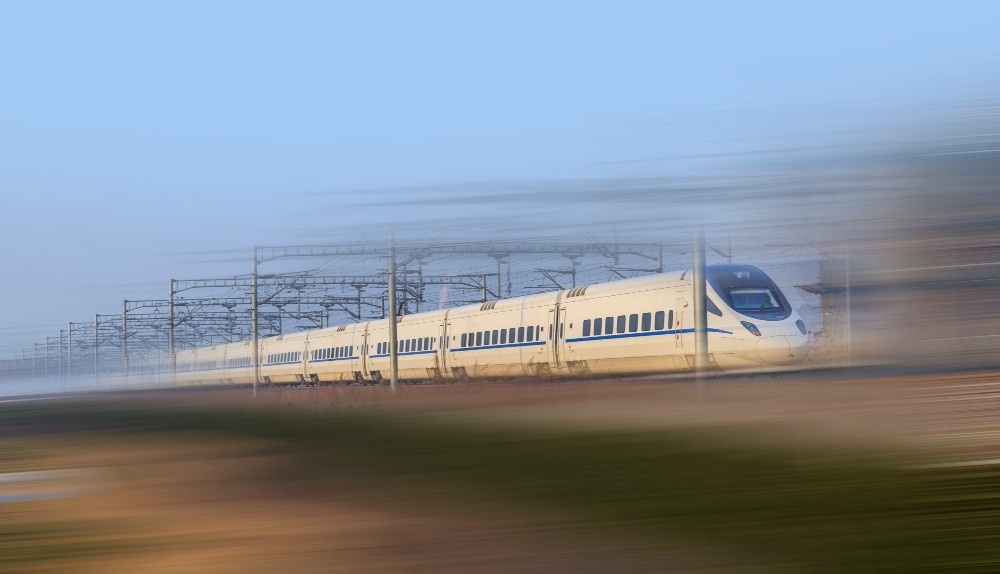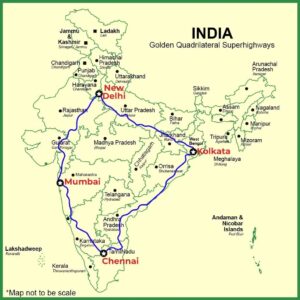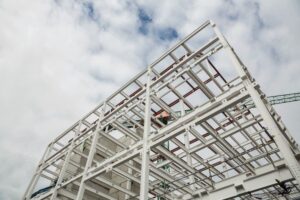
How Hyperloop & High-Speed Rail Could Transform Industrial Supply Chains?
There’s a major transformation coming to transportation, with technologies like Hyperloop and high-speed rail promising a major change.
Industrial supply chains could be significantly changed by these futuristic transit systems, which would reduce logistics costs, increase efficiency, and speed up manufacturing.
This article explores how hyperloop and high-speed rail could reshape industrial supply chains and what they mean for businesses, especially in India!
Why is it Important to Have Fast and Efficient Supply Chains?
In manufacturing and trade, supply chains are everything. The efficient flow of goods between suppliers, manufacturers, and distribution centers is essential to reducing costs and increasing efficiency.
However, traditional freight transportation – relying on road, rail, and air – faces several challenges such as congestion, delays, fuel costs, and environmental concerns. To overcome these limitations, industries are now looking at high-speed alternatives like Hyperloop and modern rail networks.
Let’s first understand what they are.
What is Hyperloop?
Hyperloop is a next-generation transport system that uses low-pressure tubes to propel passenger and cargo pods at speeds exceeding 1,000 km/h. It operates on magnetic levitation technology, reducing friction and making it one of the fastest transportation modes in development today.
With companies like Virgin Hyperloop and Tesla investing in Hyperloop technology, governments worldwide are exploring its applications for both passenger and freight transport.
What is High-Speed Rail?
High-speed rail (HSR) is an advanced rail system that operates at speeds of 250–350 km/h. Countries like Japan, China, and France have successfully implemented HSR networks, reducing travel and freight transit times significantly.
India has also initiated its own Bullet Train project, connecting major industrial hubs to enhance logistics efficiency.
How Hyperloop & High-Speed Rail Could Improve Industrial Supply Chains?
1. Reduced Transit Times
One of the biggest advantages of Hyperloop and HSR is the drastic reduction in transit times. It takes several days for freight trains and trucks to move raw materials and finished goods across long distances. With Hyperloop, it can take just hours, ensuring just-in-time (JIT) inventory management for manufacturers.
For industries like automobile manufacturing, pharmaceuticals, and e-commerce, faster transit means reduced warehousing costs and faster product delivery.
2. Lower Transportation Costs
Freight movement via Hyperloop and HSR could be more cost-effective than traditional trucking and air freight. With reduced fuel consumption, lower maintenance, and higher load capacities, these advanced systems could save you a lot on logistics.
Additionally, companies investing in high-speed rail networks can optimize supply chain routes, reducing their dependency on expensive and unreliable road transport.
3. Improved Reliability & Supply Chain Resilience
There’s always a risk of logistics operations getting delayed by weather, road congestion, and fuel costs. With high-speed rail and Hyperloop, there’s no traffic or outside interruptions to cause delays.
4. Sustainable & Eco-Friendly Transport
Sustainable development is becoming more and more of a priority for businesses and governments. Compared with traditional modes of transportation, hyperloop and high-speed rail are designed to be energy-efficient.
As India grows its green infrastructure, integrating these systems into industrial supply chains could make businesses more sustainable while improving efficiency.
5. Connectivity Between Industrial Hubs
There are a lot of industrial zones in India, so raw materials and finished goods often have to travel a long way. Hyperloop and HSR could create high-speed corridors linking major manufacturing centers like Mumbai, Delhi, Chennai, and Bengaluru.

By integrating high-speed transit solutions, businesses could cut lead times, reduce inventory storage requirements, and boost regional trade.
The Future of Hyperloop & HSR in India
India is already building its Mumbai-Ahmedabad bullet train project, which will connect key industrial regions and improve freight efficiency. Future high-speed rail expansions could further enhance logistics operations for industries nationwide.
Additionally, Indian companies are exploring Hyperloop feasibility studies for both passenger and cargo transport. Global trade networks and industrial supply chains could be revolutionized with these futuristic transportation systems.
Transform Your Supply Chains with Hyperloop & HSR
With faster, more cost-effective, and more environmentally friendly logistic solutions, hyperloop and high-speed rail can revolutionize industrial supply chains. With India’s infrastructure projects progressing, businesses must be prepared to integrate these technologies.
For expert industrial facility planning & support, VMS Consultants offers comprehensive engineering, architecture, and project management solutions.
Partner with VMS to build future-ready industrial systems for growth and efficiency!





